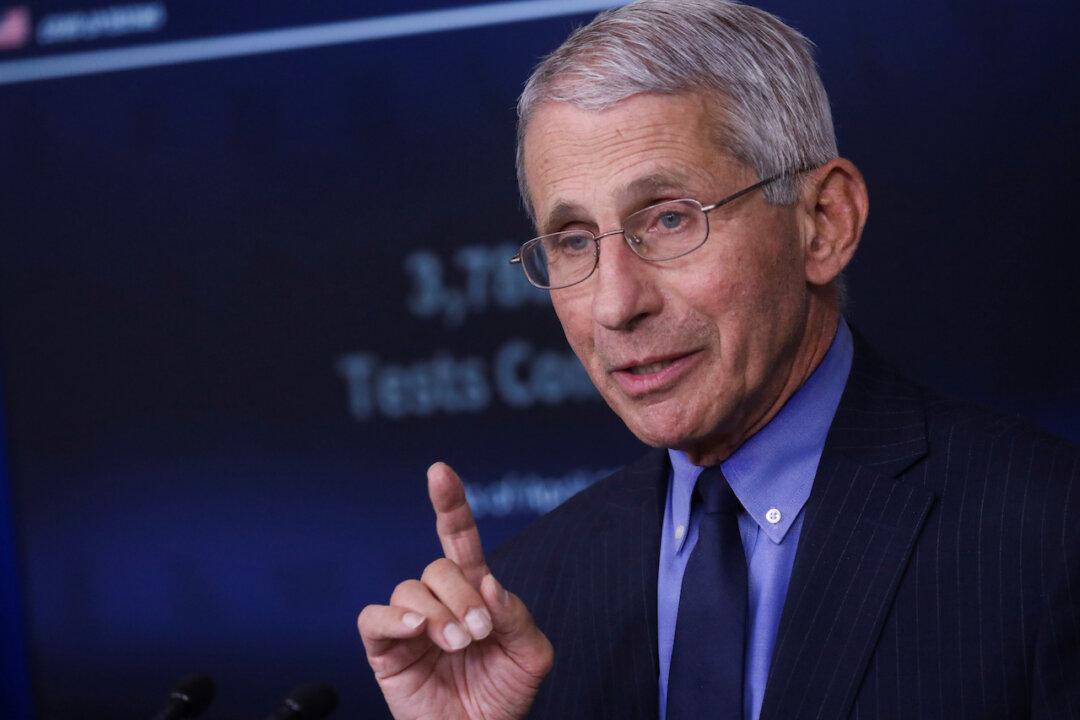The prospect of scientists developing a highly effective CCP (Chinese Communist Party) virus vaccine is “not great,” according to Dr. Anthony Fauci.
Fauci, the head of the National Institute of Allergy and Infectious Diseases, is a top infectious disease expert.





